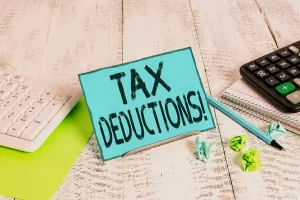In today’s fast-paced world, managing your monthly expenses is more important than ever. With so many financial responsibilities, bills, and temptations to spend money, it can be easy to lose sight of where your money is going. However, by implementing a few simple strategies and using modern technology to your advantage, you can become an expert at managing your monthly expenses. In this article, we explore effective ways to track your expenses like a pro and take control of your finances.
1. Make a Budget
One of the basic steps to manage your monthly expenses is to create a budget. A budget is like your financial roadmap, providing a clear overview of your income, fixed expenses (rent, utilities, loan payments), and variable expenses (groceries, dining out, entertainment). There are many budget apps to help you get started, such as Mint, YNAB (You Need a Budget), and Personal Capital.
2. Save Receipts and Use an App to Track Expenses
Gone are the days of manually recording each issue in a notebook. Nowadays there are many expense tracking apps that can do this for you. Apps like Expensify, Evernote, and PocketGuard let you take photos of your receipts and track your expenses in real-time. These apps categorize your expenses, making it easy to see where your money is going and identify areas where you can cut back.
3. Set Financial Goals
Setting financial goals is a powerful motivator to help you keep track of your monthly expenses. Whether you’re saving for a vacation, paying off debt, or investing for the future, having a goal in mind will encourage you to stick to your budget and watch your spending. Set achievable milestones and track your progress regularly.
4. Automate your Savings
If you find it challenging to save money, consider automating the process. Set up automatic transfers from your checking account to your savings or investment account. This way you won’t be tempted to spend the money you originally planned to save.
5. Check your Expenses Regularly
Get into the habit of checking your expenses regularly, preferably weekly or biweekly. This allows you to quickly identify any overspending or irregularities and adjust your budget accordingly. Many financial applications offer visual reports and graphs to make the process more intuitive.
6. Reduce Unnecessary Expenses
As you track your monthly expenses, you may discover areas where you can cut back. This could include eating out less, canceling unused subscriptions, or finding more cost-effective alternatives. Keep in mind that small savings can add up significantly over time.
7. Check your Credit Score
Your credit score can have a significant impact on your financial health. Checking your credit score regularly can help you identify and resolve any issues that may be affecting your ability to obtain credit or get a better loan rate.
8. Seek Professional Advice
If your financial situation is complex or you are struggling to manage your expenses effectively, consider seeking advice from a financial advisor. They can help you create a comprehensive financial plan and provide insight into how to achieve your financial goals.
9. Beware of Impulse Purchases
Impulse buying is a common budget killer. To avoid this, practice mindfulness before making a purchase. Ask yourself if you really need the item or if it is just a passing desire. Consider setting a waiting period before purchasing non-essential items to curb impulse spending.
10. Save Windfalls and Bonuses
When you receive a windfall or bonus, such as a tax refund or a job bonus, consider saving some of the money. This is a great opportunity to grow your savings or pay off debt faster without impacting your regular monthly budget.
11. Use Cash to Pay Variable Expenses
If you tend to overspend with your credit or debit card, try using cash to pay for variable expenses such as groceries and entertainment. When you actually see your money drop, it encourages you to develop more frugal spending habits.
12. Emergency Fund
An emergency fund is a financial buffer against unexpected expenses. It prevents you from dipping into your savings or going into debt when you’re faced with unforeseen medical bills, car repairs, or home maintenance. Experts recommend saving at least three to six months’ worth of living expenses in an emergency fund.
13. Track and Categorize Every Issue
Make it a habit to track and categorize each expense. This level of detail gives you a more complete picture of your spending patterns. Some expenses may surprise you, and categorizing them can help you identify areas where you’re out of budget.
14. Meal Planning
Meal planning is a great way to save money and reduce food-related expenses. Plan your meals for the week, make a shopping list, and stick to it when you go grocery shopping. You avoid spontaneous takeaway orders and reduce food waste.
Conclusion
By implementing these additional tips, you can take your expense tracking to the next level and truly manage your monthly budget like a pro. It’s not just about being diligent; it’s about developing smart money habits that will lead to a more secure financial future. Tracking your monthly expenses is an important step toward achieving your financial goals and ensuring financial freedom.
FAQs
1. Why is it important to track monthly expenses?
Tracking your monthly expenses is crucial as it gives you a better understanding of where your money is going. This will help you identify areas where you can save, avoid overspending, and work toward your financial goals.
2. What’s the best way to track expenses?
The best way to start is with a budget. Make an overview of your income, fixed expenses, and variable expenses. You can use a budgeting app or a simple spreadsheet for this.
3. Are there any good expense-tracking apps available?
Yes, there are many excellent expense-tracking apps, including Mint, YNAB (You Need a Budget), Personal Capital, Expensify, and PocketGuard. These apps make it easy to monitor and categorize your expenses.
4. How often should I check my expenses?
It’s a good idea to review your expenses every week or every two weeks. Regular reviews can help you identify overspending and adjust your budget as necessary.
5. What should I do if I have trouble staying within my budget?
If you find it challenging to stick to a budget, consider setting financial goals to motivate yourself. It also helps automate savings and reduce unnecessary expenses.



